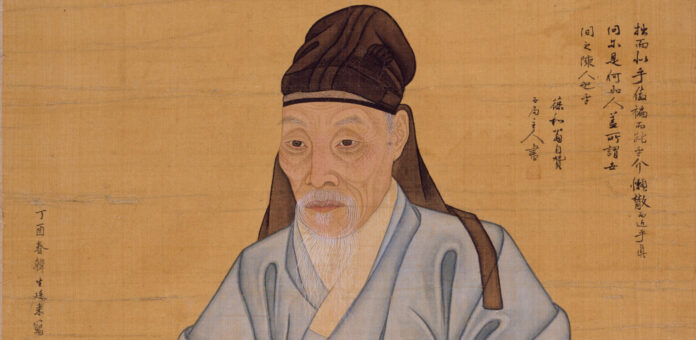The Ethnologisches Museum and the Museum für Asiatische Kunst at the Humboldt Forum will be hosting the first ever comprehensive exhibition featuring the Ethnologische Museum’s lesser-known Korean holdings. Comprising around 120 works, including pieces by contemporary female artists, this exhibition will provide an insight into Korea’s rich culture, spanning from the 19th century to the present day. It will also highlight Germany’s enduring fascination with Korea, tracing this interest all the way back to the 1870s. What’s more, 2023 marks the 140th anniversary of the establishment of official diplomatic relations between Germany and Korea.
The title of the exhibition references the Korean folk song Arirang, which is widely considered an important symbol of Korean identity. The Ethnologisches Museum’s Phonogramm-Archiv boasts rare recordings of this song that were made in German prisoner-of-war camps during the First World War. Visitors to the exhibition can listen to two of these recordings – nostalgic songs from young Russian-Korean men yearning for their homeland from the years 1916 and 1917 – at listening stations.
The Joseon Era (1392 to 1910)
The exhibition, which spans from the 19th century to the present moment, begins with an introduction to the intricacies of Korean society during the Joseon Dynasty (1392–1910). Using selected holdings from the Ethnologisches Museum’s Korea collection, it explores the enduring social values that continue to play a role in Korea today. It also features in-depth sections devoted to aspects like the role of neo-Confucian scholarship in consolidating the state, the military, and the role of women in society. During the Joseon era, women’s roles were profoundly influenced by rigid neo-Confucian ethics, which bolstered the patriarchal system through practices such as a prohibition on remarriage after widowhood and an inheritance system reserved exclusively for male descendants.
The Land of Hats
A central focus of the Korea collection in Berlin is on Joseon-era hats, something that Korea, known in 19th-century travel literature as the “land of hats”, was famous for. In an expansive display, the exhibition showcases the diversity of this headwear, revealing what each one represented. In addition, it bridges the gap to the present day with hats made especially for the exhibition by Berlin-based artist and milliner Fiona Bennett, whose creations have been worn by celebrities around the world and have even graced the cover of Vogue. The exhibition illustrates the extent to which technically intricate Korean hats continue to captivate Germany’s hat makers today, even if the trade is almost obsolete back in Korea. Bennett’s hats themselves are given a voice within the exhibition, becoming “talking hats” and sharing their fascinating life stories via a listening station[JS1] .
Korean Mask Theatre
Another section of the exhibition is devoted to masks from different regions of Korea, where the tradition of humorous and satirical mask theatre and dance has persevered to the present day. Mask theatre can be traced back in part to the early Silla period (668–935), when performers would use the disguises to criticise the social elite. The masks represented figures like immoral nobles or apostate religious leaders, such as a sinful Buddhist monk afflicted with scabies. They were used to entertain spectators in satirical and socially critical plays designed by the people, for the people. Some of the masks were also used in rituals aimed at ensuring good harvests and to ward off demons.
Korean Painting: Past and Present
The exhibition also provides a rare opportunity to admire the refinement of Korean portrait painting, with loans from the National Museum of Korea on display. The four hanging scrolls, of which only two will be shown at a time for conservation reasons, feature depictions of famous Joseon scholars adorned with the regalia typical of that era. Modern paintings by Bae Unseong and the Berlin Cycle by the artist Yerin Hong deal with themes of identity and belonging.
A programme of guided tours, lectures and artist talks will accompany the exhibition.
Research project on the Ethnologisches Museum’s Korean Collection
The foundations for this exhibition were laid by a research project on the reappraisal of the Ethnologische Museum’s Korea collection. Funded by the Overseas Korean Cultural Heritage Foundation, the project was conducted between January 2021 and December 2022 by Henriette Lavaulx-Vrécourt and Claudius Kamps from the Ethnologische Museum and under the leadership of Professor emerita Jeong-hee Lee-Kalisch of Freie Universität Berlin.
The exhibition project is sponsored by the Embassy of the Republic of Korea, the Korean Cultural Center, the Korean Foundation for International Cultural Exchange and the National Museum of Korea. We would also like to thank the Stiftung Humboldt Forum for its support.
A special exhibition by the Ethnologisches Museum and the Museum für Asiatische Kunst – Staatliche Museen zu Berlin at the Humboldt Forum
Source : Museen zu Berlin













